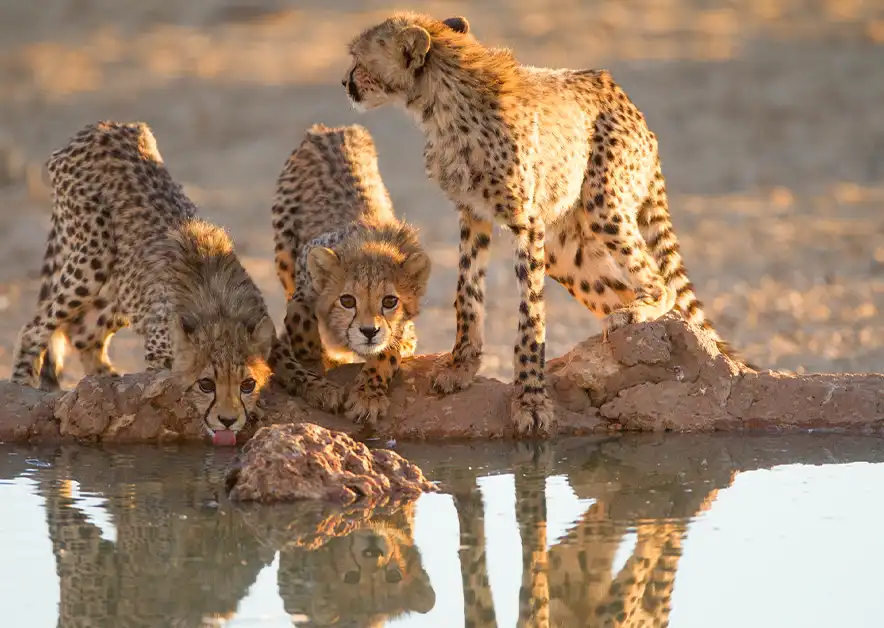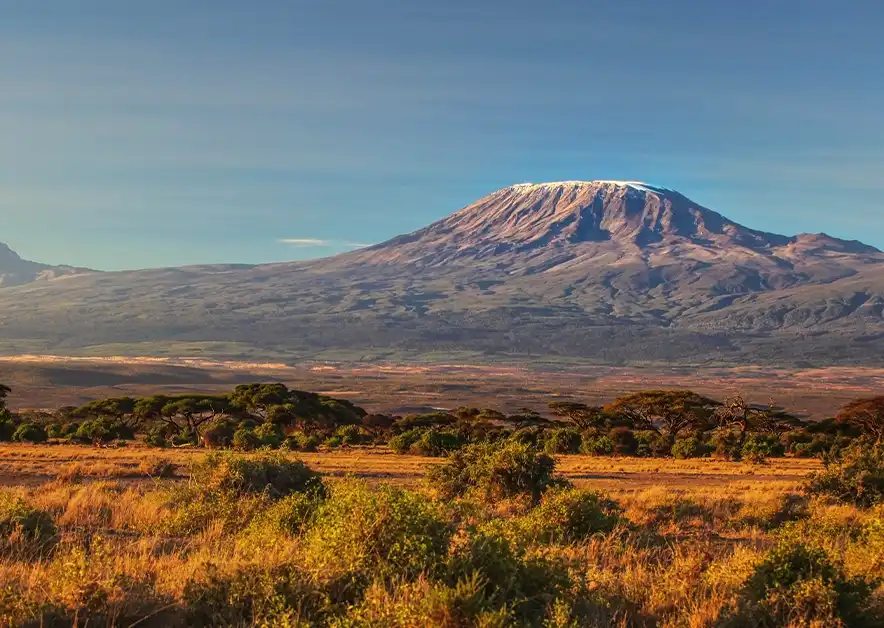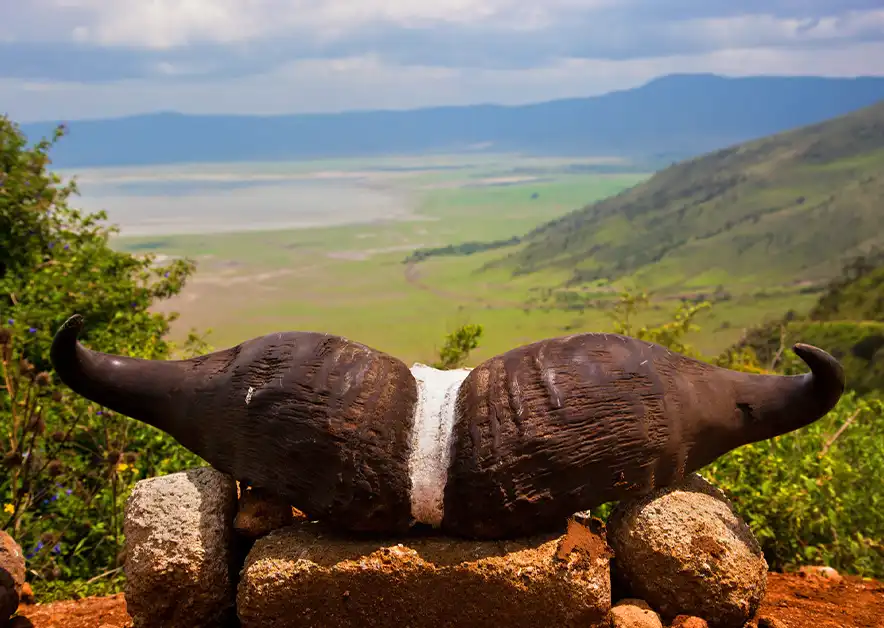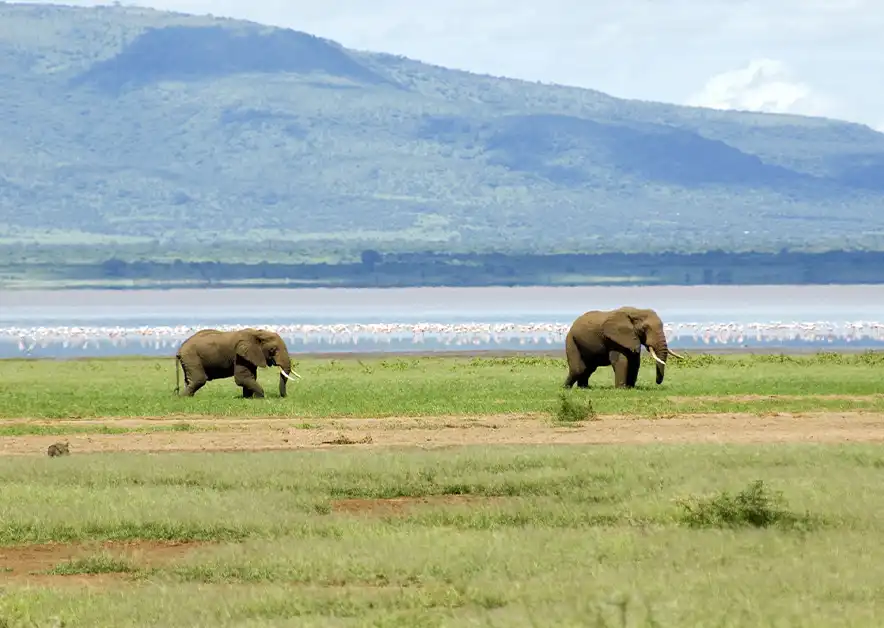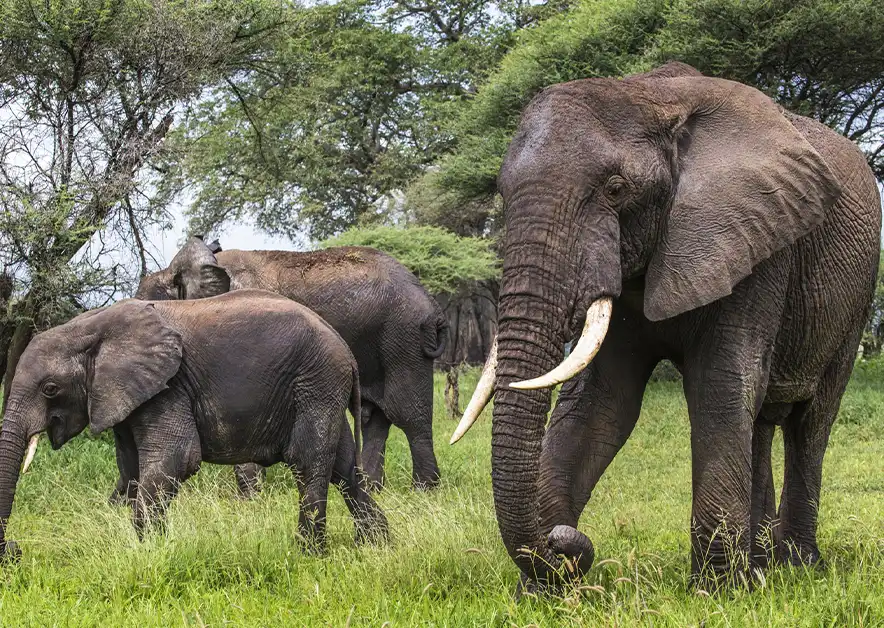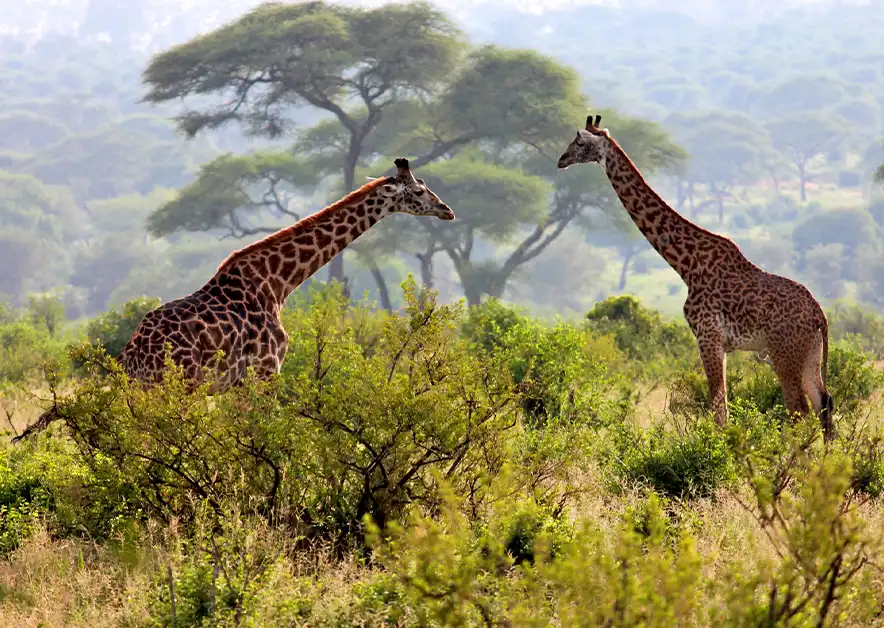Tanzania Safari FAQs
Planning a safari in Tanzania can raise a lot of questions, especially if it’s your first time. Below, you’ll find answers to some of the most common queries about safaris in Tanzania, covering everything from safety and travel tips to wildlife and logistics.
When is the Best Time to Visit Tanzania for a Safari?
| Season |
Months |
Weather |
Best For |
| Dry Season |
June to October |
Warm, dry |
Best wildlife viewing, Serengeti Great Wilsebeest Migration |
| Wet Season |
November to May |
Hot, occasional rain |
Fewer crowds, lush landscapes, birdwatching |
| Peak Migration |
July to October |
Dry, sunny |
Great Migration river crossings in Serengeti |
| Calving Season |
January to March |
Warm, some rain |
Best for wildebeest calving in Serengeti |
- Best Overall Time: June to October (dry season for safaris and migration)
- Great Migration: July to October (Serengeti) and January to March (calving season)
How Much Does a Safari in Tanzania Cost?
| Safari Type |
Cost (per person, per day) |
Details |
| Budget Camping Safari |
$150 – $250 |
Basic camping, shared facilities, group safaris |
| Mid-Range Safari |
$250 – $400 |
Comfortable lodges, private or group safaris |
| Luxury Safari |
$500 – $1,500+ |
Luxury lodges, private vehicles, high-end service |
| Fly-In Safari |
$800 – $2,000+ |
Includes flights between parks, luxury lodging |
- Budget Safaris: $1,000 to $1,500 for 5 days
- Luxury Safaris: $6,000 to $10,000+ for 10 days
What Wildlife Will I See on Safari?
| Animal |
Best Location |
Best Time to See |
| Big Five (Lion, Elephant, Rhino, Buffalo, Leopard) |
Serengeti, Ngorongoro Crater |
Year-round (dry season best for sightings) |
| Wildebeest Migration |
Serengeti, Maasai Mara (Kenya) |
July to October (river crossings) |
| Flamingos |
Lake Manyara, Lake Natron |
June to October |
| Cheetahs |
Serengeti, Ruaha |
Year-round |
| Hippos and Crocodiles |
Serengeti, Tarangire, Selous |
Year-round |
- Best Time for Wildlife: June to October (dry season)
- Best for Birdwatching: November to April (wet season)
Do I Need Vaccinations to Travel to Tanzania?
Yes, vaccinations are recommended before traveling to Tanzania. Always consult your doctor for specific advice, but the following are commonly recommended:
| Vaccination |
Recommended for Tanzania? |
Notes |
| Yellow Fever |
Yes, required if coming from a yellow fever endemic area |
Carry proof of vaccination (Yellow Fever Card) |
| Hepatitis A |
Yes |
Transmitted through food and water |
| Typhoid |
Yes |
Also transmitted through food and water |
| Tetanus/Diphtheria |
Yes |
Basic travel vaccinations |
| Malaria |
Not a vaccine, but prophylaxis is recommended |
Malaria is common in Tanzania |
| COVID-19 |
Yes, follow the current travel requirements |
Proof of vaccination or a negative test may be required |
- Malaria: Take anti-malarial medication and use insect repellent.
- Yellow Fever Certificate: Required if you’re arriving from or transiting through a country with a risk of yellow fever.
Is Tanzania Safe for Tourists?
Tanzania is generally safe for tourists, especially on organized safaris. However, as with any travel destination, it’s important to take precautions:
| Safety Tip |
Description |
| Follow Guide Instructions |
Always listen to your safari guide, especially during wildlife encounters. |
| Keep Valuables Safe |
Use hotel safes and avoid carrying large sums of money or expensive items. |
| Health Precautions |
Drink bottled water, use mosquito repellent, and take anti-malarial medication. |
| Avoid Walking Alone at Night |
Particularly in urban areas, avoid walking alone after dark. |
| Respect Wildlife |
Stay in vehicles during game drives unless instructed otherwise by your guide. |
- In the Parks: Safari parks are very safe when following the guide’s instructions.
- In Cities: Be cautious in larger cities like Arusha or Dar es Salaam, especially with petty theft.
What Should I Pack for a Safari?
| Category |
Item |
| Clothing |
Lightweight, neutral-colored clothing, a warm jacket for mornings, a hat, and sunglasses |
| Footwear |
Sturdy hiking boots, comfortable sandals for lodges |
| Gear |
Binoculars, camera, extra batteries, daypack, flashlight |
| Health and Safety |
Sunscreen, insect repellent (DEET), malaria medication |
| Documents |
Passport, visa (if needed), travel insurance, vaccination card |
Recommended Packing List:
- Clothing: Neutral colors (beige, khaki) to blend with the surroundings and avoid attracting insects.
- Warm Layers: Mornings and evenings can be cool.
- Sunscreen and Hat: Essential for protection from the sun.
- Binoculars and Camera: To capture wildlife sightings.
Do I Need a Visa to Visit Tanzania?
Yes, most travelers require a visa to enter Tanzania. There are two ways to obtain a Tanzanian visa:
| Visa Type |
How to Apply |
Cost |
| Visa on Arrival |
Available at airports and land borders for most nationalities |
$50 (single-entry), $100 (US citizens) |
| e-Visa |
Apply online before travel (recommended) |
$50 – $100, depending on nationality |
- Visa on Arrival: Available at major entry points (e.g., Kilimanjaro International Airport).
- e-Visa: This can be applied for online before arrival, which may save time at the airport.
What is the Currency in Tanzania?
| Currency |
Details |
| Tanzanian Shilling (TZS) |
The official currency of Tanzania. |
| USD |
Widely accepted, especially for tourist-related payments. |
- Credit Cards: Accepted in major hotels and lodges, though often with a surcharge.
- ATMs: Available in cities but may be limited to rural areas or safari camps.
How Long Should I Spend on Safari in Tanzania?
| Duration |
Recommended Itinerary |
Best For |
| 3-5 Days |
Visit 1-2 parks like Serengeti and Ngorongoro Crater |
Quick safari experience, budget travelers |
| 7-10 Days |
Serengeti, Ngorongoro, Tarangire, Lake Manyara |
Ideal for seeing multiple parks and regions |
| 10-14 Days |
Northern Circuit plus extensions (Ruaha, Selous, Zanzibar) |
Comprehensive safari and beach holiday combo |
- Short Trip (3-5 Days): Focus on 1-2 key parks like Serengeti or Ngorongoro.
- Longer Safari (7-10 Days): Allows for visiting multiple parks and a more in-depth wildlife experience.
- Beach Extension: Add a few days in Zanzibar to relax after your safari.
What Are the Best National Parks to Visit in Tanzania?
| National Park |
Known For |
Best Time to Visit |
| Serengeti National Park |
Great Migration, Big Five, vast plains |
June to October, January to March (calving) |
| Ngorongoro Crater |
Big Five, dramatic landscape, rhinos |
Year-round, June to October (dry season) |
| Tarangire National Park |
Elephants, baobab trees, migratory birds |
June to October |
| Lake Manyara National Park |
Tree-climbing lions, flamingos, birdlife |
June to October |
| Ruaha National Park |
Remote wilderness, big cats, fewer tourists |
June to October |
| Selous Game Reserve |
Boat safaris, fewer tourists, large elephant herds |
June to October |
Summary of Tanzania Safari FAQs
Tanzania is one of the top safari destinations in the world, offering incredible wildlife, beautiful landscapes, and a variety of safari experiences. By understanding the best time to visit, what to pack, and the costs involved, you can plan the perfect safari. Whether you’re a first-time visitor or a seasoned traveler, this FAQ guide covers everything you need to know to make the most of your Tanzanian Safari adventure.

